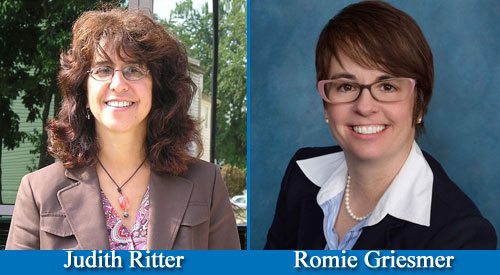SCOTUS decision impacts clinic case
11/2/2016

Delaware Law students working as interns in the school’s Criminal Defense Clinic have gotten a personal view of the impact the nation’s highest court can have on the lives and liberties of individual Americans, thanks to a case that resolved recently after years of work.
When the U.S. Supreme Court ruled four years ago in Miller v. Alabama, that mandatory life without parole sentences for juveniles were unconstitutional, the clinic began working on the case of Chris Jordan. Jordan was convicted of first-degree murder at age 16 in 1980. When he was sentenced as a teen, the mandatory sentence was life in prison, without the possibility of parole.
The law school’s Criminal Defense Clinic, which handles cases out of Chester County, Pa., began working to get Jordan a new sentencing after the Miller decision. Then, in January 2016, the Supreme Court went on to rule in Montgomery v. Louisiana that the Miller decision applied retroactively, and through the clinic’s efforts Jordan received a new sentence of “time served to life.” With the clinic’s continued advocacy, Jordan had a hearing before the Pennsylvania Parole Board in July. The board quickly elected to release him and after 36 years behind bars he went home to live with his mother in Pennsylvania.
Jordan was convicted of conspiring with two other juveniles in the shooting death of another young man they knew.
“He knows now he had the power to change the course of events that evening and if he could go back and do that now, he would," clinic Supervising Attorney Romie Griesmer said. “He spent more than twice the amount of time he’s been alive, in prison for the shooting that took place when he was 16. While the death was absolutely tragic, the courts have said sentences like Chris’ were unconstitutional.”
Professor and Clinic Director Judy Ritter said studies have shown the human brain doesn’t fully develop until a person reaches the mid 20s, and brain functions dealing with impulsivity are not fully developed in juveniles. In ruling against mandatory life sentences for juveniles, courts have found youngsters are not as blameworthy as adults who make the choice to take a life, Ritter said.
“This was an excellent learning experience for our students. They got to experience what it is like to use the law from the highest court in the land to frame an argument,” Ritter added. “They also learned what it means to provide zealous representation, even in difficult cases.”
Jordan is now 52. Griesmer and Ritter say he wants to be a productive person using skills he learned in prison, like woodworking and plumbing. Both lawyers were present when he was released from prison. He immediately started naming student interns he’d met over the years, and asked the women to thank them.
One of those students was Nick Patullo, who continued to track Jordan’s case after his 2013 graduation. “Knowing that I got to have even the smallest part in his case at such an early part of my legal career is something I will always be proud of,” Patullo said. “I will always be incredibly thankful to Chris Jordan and the clinic for allowing me to work on his case.”
Fellow 2013 graduate Roderick Thompson, who worked on Jordan’s case his entire 3L year, concurred.
“My work in the clinic, and Chris’ case specifically, cemented my belief that a career representing indigent defendants was my calling,” said Thompson, who today works as a public defender in Washington, D.C.
